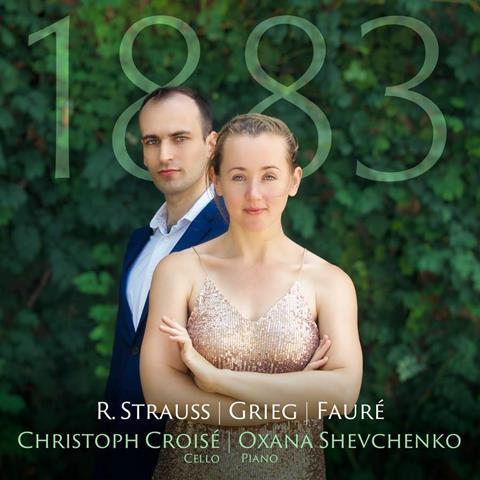A programme built around a single year produces interventionist performances

The Strad Issue: January 2024
Description: A programme built around a single year produces interventionist performances
Musicians: Christoph Croisé (cello) Oxana Shevchenko (piano)
Works: Fauré: Élégie. Grieg: Cello Sonata. Strauss: Cello Sonata
Catalogue number: AVIE AV2632
What a propitious year 1883 must have been to inspire such seminal works for the cello. It certainly proves to be an excellent idea for generating a varied yet cogent programme. Of course, with late Romantic works, the piano parts are extensive in range and timbre, and need an astute touch for the lower registers of the cello not to be overwhelmed. Oxana Shevchenko rises to this challenge with supreme deftness, bringing much colour to the piano’s role. Christoph Croisé is an eloquent partner, eliciting an impressive range of dynamics so essential in large-scale works.
Review: Christoph Croisé: Raff
Read: Christoph Croisé wins Alice & Eleonore Schoenfeld International String Competition cello section
He evokes a tremendous spontaneity and freshness in the early Strauss sonata, whose first-movement melodies are teeming with energy and joie de vivre, and in the turbulent and passionate Grieg. All in all, the duo musters a feathery brilliance in the finale of the Strauss, and brings lots of intensity to the full-blooded passages in the opening movement of the Grieg.
My only caveat – and this really percolates through the whole programme – is a tendency to over-complicate quieter passages with too much fussy nuance, as for example in the central movement of the Strauss and the Fauré Élégie. Often a simpler delivery is ironically more expressive. In the Grieg sonata, the finale’s oscillation between the folk-like main theme and the more tranquillo passages is also slightly overdone, which tends to fragment the invention and thus stifle the work’s momentum.
Joanne Talbot










































No comments yet